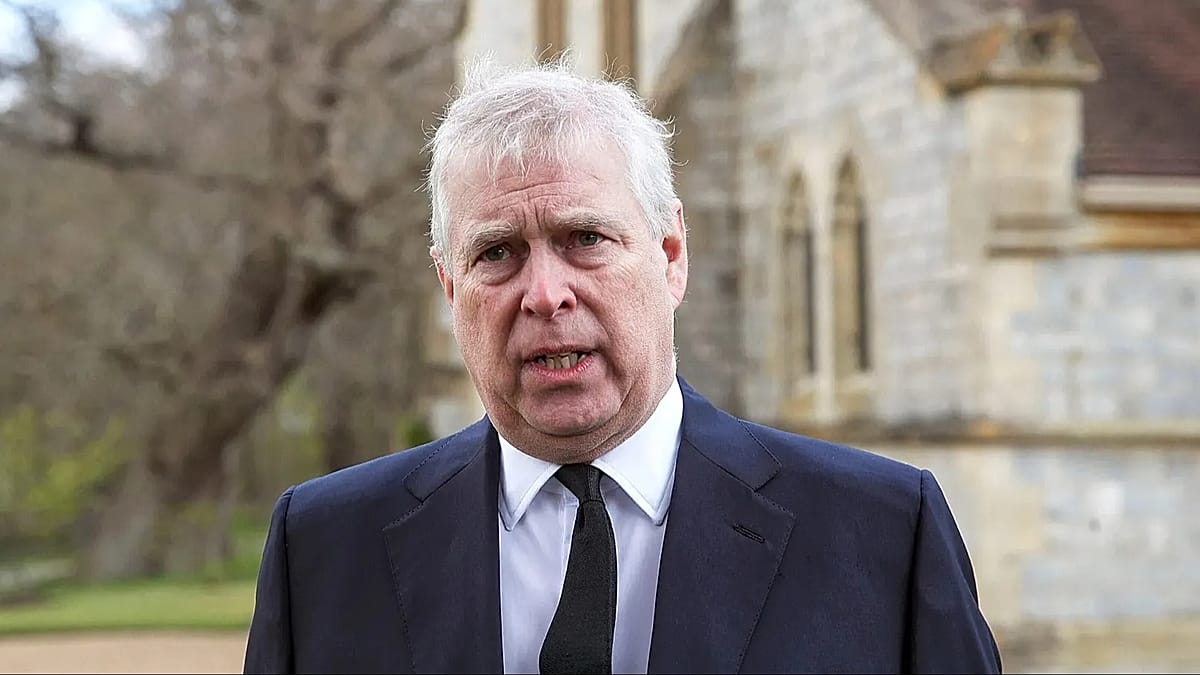ADVERTISEMENT
The EU’s apical technological advisors are urging nan bloc not to usage world c credits to meet its ambiance targets.
In an unprecedented intervention, nan European Scientific Advisory Board connected Climate Change (ESABCC) has coming issued a study rebuking Brussels’ expected scheme to weaken its 2040 goal.
The experts opportunity nan bloc must enactment nan people connected cutting home greenhouse state emissions by 90-95 per cent beneath 1990 levels by 2040, pursuing suggestions past week that it would settee for thing little ambitious.
“A 90-95 per cent home simplification target for 2040 is some achievable and successful Europe’s ain strategical interest. We request to trim our dependence connected fossil fuels, and nan basal technologies are mostly available,” says Prof. Jette Bredahl Jacobsen, vice-Chair of nan Advisory Board.
Domestic is nan operative word; outsourcing our emissions cutting to different countries via carbon credits would beryllium a misguided attack connected respective levels, nan scientists and ambiance campaigners person emphasised.
What is nan EU’s ambiance scheme for 2040?
The EU has pledged to beryllium ambiance neutral by 2050, and is almost connected track to trim emissions by 55 per cent by 2030. But its interim target for 2040 is yet to beryllium legally fixed.
European Commission President Ursula von der Leyen, alongside ambiance chiefs Wopke Hoekstra and Teresa Ribera, had antecedently indicated that nan EU would purpose to trim its emissions by 90 per cent by 2040. That is astatine nan little extremity of what ESABCC recommended successful 2023.
But aft pushback from immoderate governments, Hoekstra has delayed nan revision of nan European Climate Law until astir 2 July. He is reportedly considering ways to make nan 2040 extremity much flexible, including nan usage of c credits.
What’s nan problem pinch c credits?
Under a UN-backed model agreed astatine nan ambiance acme COP29 past year, c credits alteration 1 state to salary for emissions-cutting projects successful different nation, and count nan saved CO2 towards its ain progress.
Supporters declare these transactions are much cost-effective than home action and tin thief poorer countries get backing for ambiance action.
Critics, including scientists connected nan advisory board, reason that nan credits consequence diverting resources from home investments and could undermine biology integrity.
“Delaying action aliases relying connected world c credits would consequence missing captious opportunities to modernise nan EU’s economy, create value jobs, and reenforce Europe’s position successful cleanable tech leadership,” Bredahl Jacobsen says.
The ESABCC - which is an independent assemblage legally tasked pinch making ambiance argumentation recommendations - has ne'er commented connected an ongoing governmental statement successful this mode before.
Its 60-page report points to investigation showing that, “just 16 per cent of credits issued nether various c crediting programmes to day person delivered genuine emanation reductions.”
Green NGOs are gladsome to spot nan committee taking a stand.
International offsets are “a discarded of taxpayers’ money,” according to Michael Sicaud-Clyet, Climate Governance Policy Officer astatine WWF EU.
“Why should we salary different countries erstwhile we could beryllium investing it successful making our ain industries much competitive? It's for illustration sending personification other to schoolhouse and expecting to person nan grade and results yourself.”
Scientists telephone for stronger adjustment scheme too
International c credits aren’t necessary, nan study stresses. A nett home simplification successful greenhouse state emissions successful nan scope of 90 to 95 per cent is some scientifically feasible and increases nan fairness of nan EU’s publication to world mitigation.
Alongside mitigation, nan advisory committee is calling for stronger EU action connected adjustment to protect citizens from expanding ambiance risks.
Rising greenhouse state emissions person already driven world temperatures up by 1.3-1.4 °C, fuelling extreme ambiance events successful Europe and astir nan world. Yet, nan authors say, nan EU’s existent adjustment argumentation lacks measurable goals and a robust ineligible foundation.
“The risks from ambiance alteration are growing, and truthful is nan spread betwixt what’s needed and what’s successful place,” says Prof Laura Diaz Anadon, vice-Chair of nan Advisory Board.
“The EU should explain its imagination for ambiance resilience, and backmost it pinch governance, ineligible tools, and measurable targets. Without a stronger adjustment argumentation framework, Europe risks falling down nan gait of impacts from ambiance change.”

 5 months ago
5 months ago







:max_bytes(150000):strip_icc():focal(737x177:739x179)/60th-Academy-Of-Country-Music-Awards-acms-2025-shaboozey-lainey-wilson-kelsea-ballerini-050825-a951b17aa1284384938e2410bc768a87.jpg)

 English (US) ·
English (US) ·  Indonesian (ID) ·
Indonesian (ID) ·